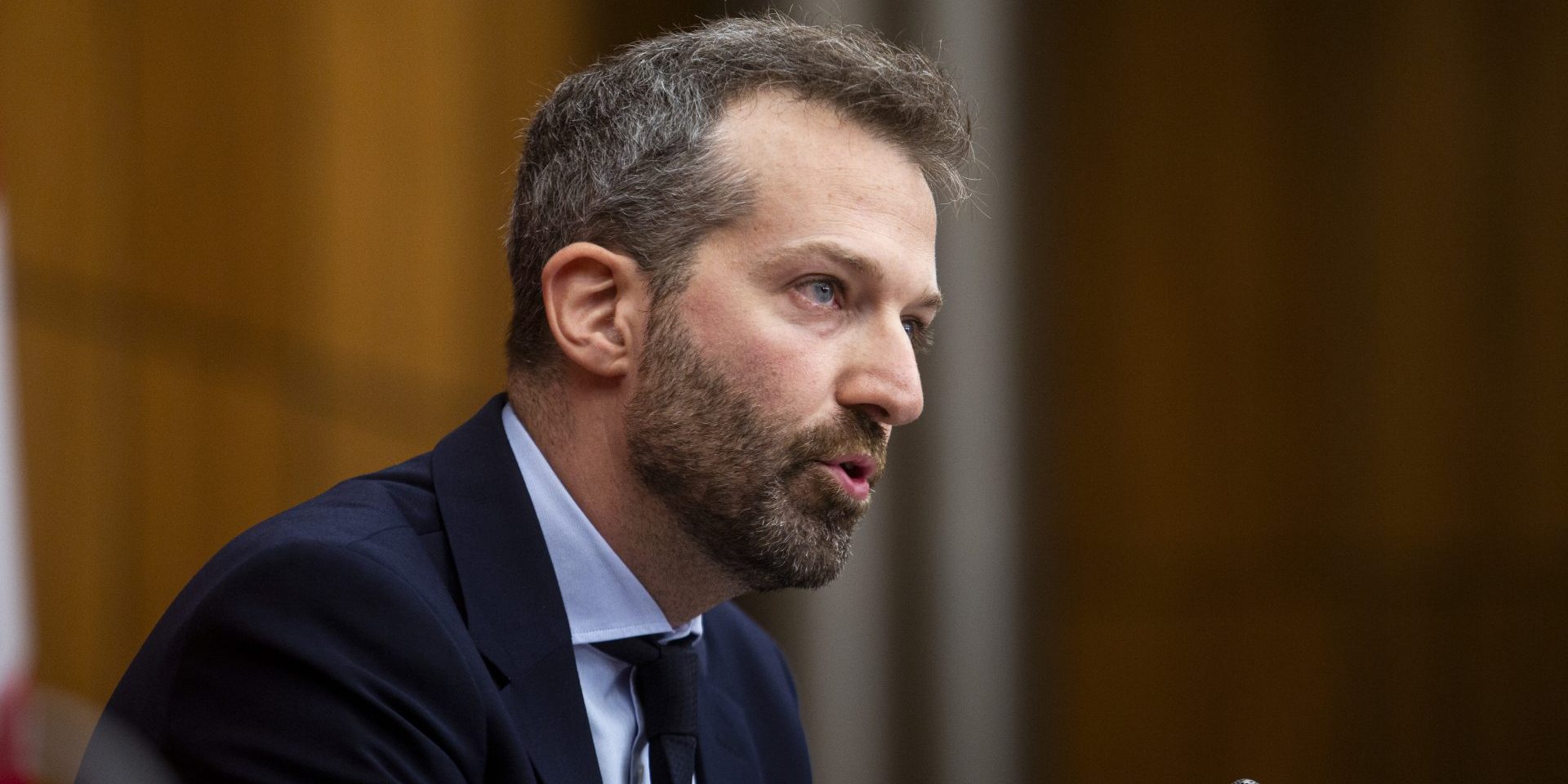Postal union launches nationwide strike after feds announce ‘heavy-handed intervention’ reforms to transform ‘insolvent’ Canada Post

The Canadian Union of Postal Workers launched a nationwide strike on Sept. 25 in response to the federal government’s sweeping reforms of Canada Post. The union said it is “outraged and appalled” by the new measures, which it argues will hurt the public and postal workers.
The union called the government’s new measures an “attack on our postal service and workers,” in a late statement on Sept. 25.
“The changes announced by the government, including converting four million addresses to community mailboxes, a reduction in mail delivery service standards and the abandoning of the rural moratorium, are drastic and will negatively impact the public and postal workers,” it read.
“If Canada Post had focused on negotiating collective agreements and increasing parcel volumes, instead of attacking workers, it would already be on a path to sustainability.”
The federal government unveiled new measures to help Canada Post, allowing it to reduce home delivery, lifting the ban on closing rural post offices, and introducing more flexible delivery standards in a bid to rescue the Crown corporation from what it called an “existential crisis.”
However, the move could lead to thousands of layoffs and further inflame the ongoing labour dispute, according to a labour studies expert.
Government Transformation, Public Works, and Procurement Minister Joël Lightbound (Louis-Hébert, Que.) said the new measures are aimed at helping to fix Canada Post’s woes, but that he also instructed the Crown corporation to review its own structure and work to reduce its overhead costs.
“Canada Post is effectively insolvent, and it is facing an existential crisis. However, repeated bailouts from the federal government are not the solution,” Lightbound said during a Sept. 25 news conference.
Calling the situation “unsustainable,” the minister said “transformation is required to ensure the survival of Canada Post, and protect the services Canadians rely on.”
Liberals’ past work to build relationships with unions is waning, says Larry Savage
“The Liberals are burning bridges with the labour movement faster than an express-post delivery,” said Larry Savage, a Brock University professor and chair of the department of labour studies, in an interview with The Hill Times.
Savage argued that the government’s new measures read as a “heavy-handed intervention” since it was done in the middle of collective bargaining with the Canadian Union of Postal Workers (CUPW), and that it will “no doubt provoke widespread outrage” not just from postal workers, but also the broader labour movement.
Lightbound said the government is accepting all recommendations cited in the May 15 report by the Industrial Inquiry Commission led by William Kaplan on the transformation of Canada Post. Those recommendations informed the new measures, which aim to achieve annual savings of more than $420-million once implemented, according to the government.
Savage said Kaplan’s recommendations undermine the union’s bargaining position, and tilts the scales decisively in favour of Canada Post management. He said this “comes across as a brazen attack on workers’ rights,” even though the labour movement was anticipating the use of recommendations as a justification for restructuring Canada Post.
“It’s not a secret that CUPW did not go into this round of bargaining with a lot of strategic leverage. But when a union is backed into the corner like this … they’re not going to go down without a fight,” he said.
Savage said the new reforms are bad news for seniors and people with mobility issues who were receiving home mail delivery, as well as for Canadians living in rural and remote communities who rely on these services.
The question going forward is whether Canadians are as aligned with postal workers as they were with the flight attendants of Air Canada, according to Savage, who said, “I don’t think they are.”
Savage said the Liberals’ past work to build strong relationships with unions is waning between what happened with the flight attendants and postal workers.
“I think the federal government might be trying to play a long game here, feeling the need to intervene so that they can take care of some long-term restructuring. But in the short term, I think you’re going to see some real labour movement anger directed towards the Carney government,” he said.
Former Conservative MPs ‘applaud’ government’s move

While some say the announcement could inflame the ongoing labour dispute, others say it is a good step forward.
Ian Lee, an associate professor at Carleton University’s Sprott School of Business, called the government’s move “long overdue,” adding he had called for those changes a decade ago, but they were “completely rejected” by the former Liberal government.
“The data of the trends was screaming at everybody, saying this organization is in a death spiral—even in 2015—and radically needs to be restructured,” he said. “They squandered 10 years of opportunity to restructure it, unfortunately, and wasted a lot of money. Now Prime Minister [Mark] Carney is reversing those very, very bad decisions.”
Lee argued that the new reforms are “the beginning of the beginning of the restructuring of Canada Post,” and said the wages make up 75 per cent of the corporation’s operating costs, which likely will result in thousands of people being laid off.
Former Conservative leader Erin O’Toole called the reforms “the right move” in an X post. “Acknowledge that times have changed and allow Canada Post to adapt to the reality of the marketplace. It remains an important institution and change is needed for it to survive,” he wrote.
Former Conservative transport minister Lisa Raitt wrote on X that she “applauds” the government’s announcement. “It is a complete reversal of what the Trudeau Liberal government promised in 2015 and a return to the plan Conservatives put in place in 2013,” she said, referencing the Harper government’s plans to end home delivery of mail, and convert to community mailboxes. That plan was halted in 2015 by the Liberal government.
What is changing?
The government is instructing Canada Post to have more flexibility in mail-delivery standards, which would allow non-urgent mail to move by ground instead of air, and save the corporation more than $20-million per year, according to Lightbound.
The government will also allow the Crown corporation to convert four million addresses to community mailboxes, shifting delivery from individual homes, and generating about $400-million in annual savings.
The government will also lift a 1994 ban on closing rural post offices, which covers close to 4,000 locations, allowing Canada Post to close or relocate post offices. Lightbound said with the times changing, those areas may now be suburban or urban.

A senior official told reporters in a morning technical briefing that Canada Post has reported cumulative operating losses of more than $5-billion since 2018. In 2024 alone, the Crown corporation reported nearly $1.3-billion in operating losses, which required a federal cash injection of more than $1-billion this year to prevent it from becoming insolvent. In the second quarter of 2025, Canada Post reported a record quarterly loss of $407-million.
According to the government, Canada Post’s financial decline stems from shrinking letter mail volumes, down 70 per cent since 2006, as well as lost parcel market share, down from 62 per cent in 2019 to 24 per cent in 2024, and an oversized structure that does not match its demand and revenue.
The government’s announcement comes as Canada Post is locked in a long-standing labour dispute with its 68,000 workers.
On May 23, CUPW began strike action with a nation-wide overtime ban for carriers who deliver mail in both urban and rural and suburban locations. CUPW members rejected the Crown corporation’s “final” contract offer last month.
CUPW president Jan Simpson issued a statement before the announcement saying that Lightbound gave the union “no indication” that changes were coming when they met last week.
“Canada Post is expected to present new global offers to us on Friday, we may soon have an answer to these questions. Canada Post has yet to confirm this with the union,” she said. CUPW did not respond to The Hill Times’ further questions by deadline.
When asked about those comments, Lightbound said he had a “productive conversation” with the union, and that the new measures address some of the issues they raised around reviewing the management structure at the Crown corporation.
A Sept. 25 Canada Post news release said: “Today’s announcement will allow us to make the changes needed to restore Canada’s postal service for all Canadians by evolving to better meet their needs. We take this responsibility seriously and will work closely with the government and our employees to move with urgency and implement the necessary changes in a thoughtful manner.”
Editor’s note: This story and headline were updated at 7:20 p.m. with the news of the nationwide strike.
The Hill Times






 LICENSING
LICENSING PODCAST
PODCAST ALERTS
ALERTS













